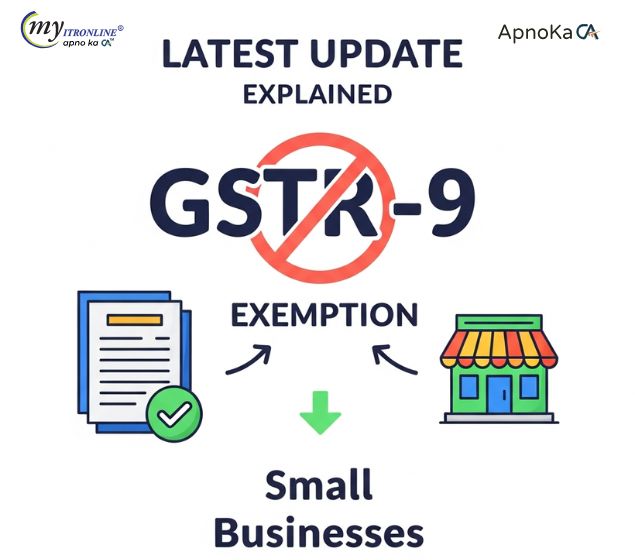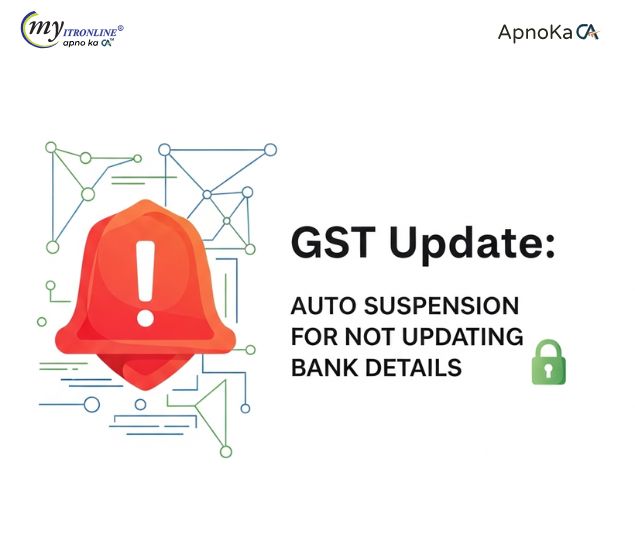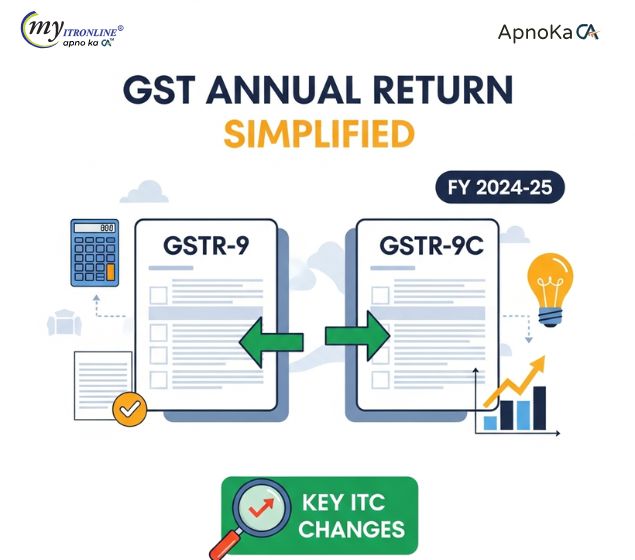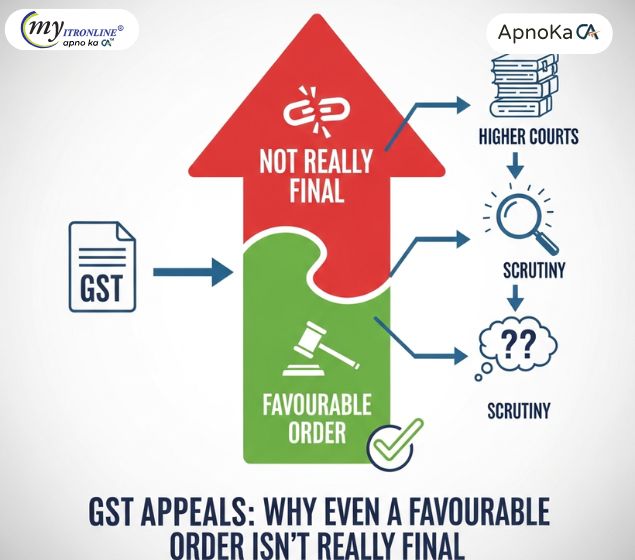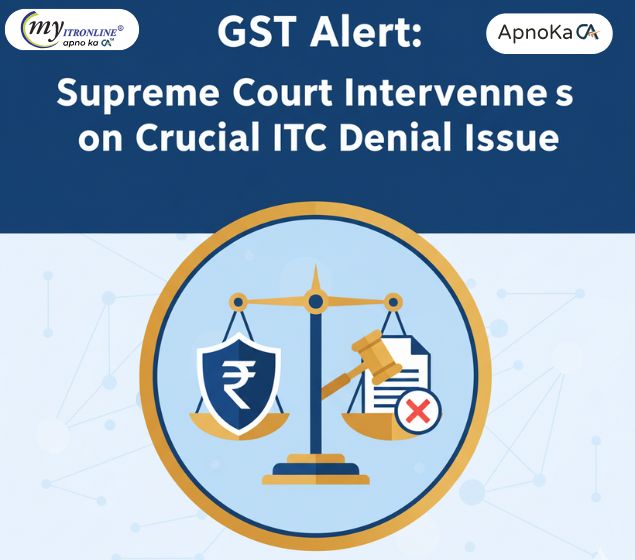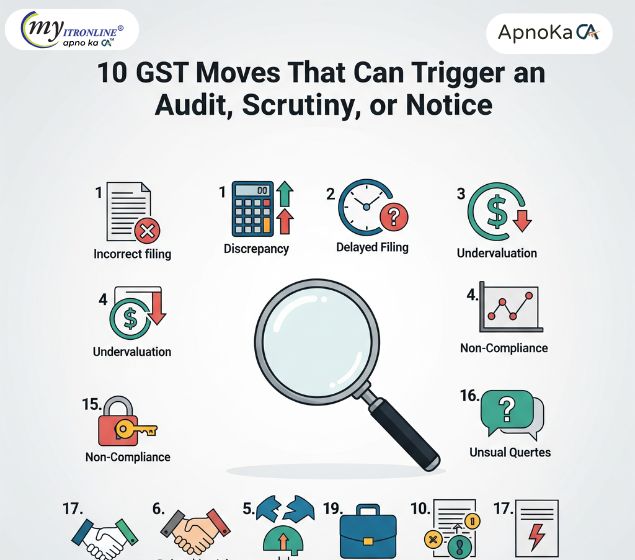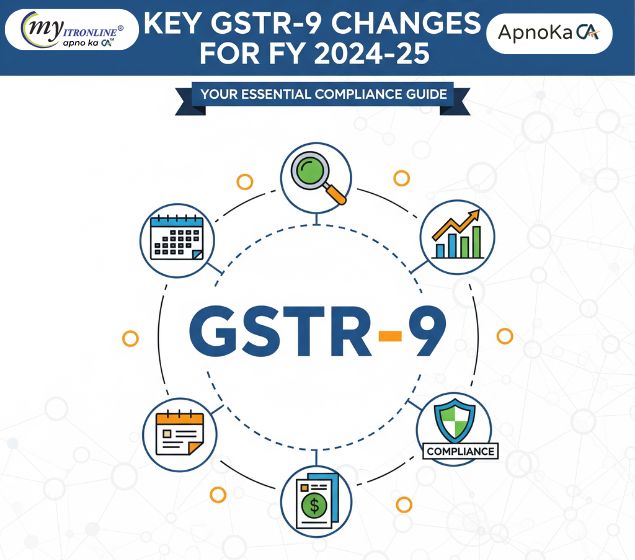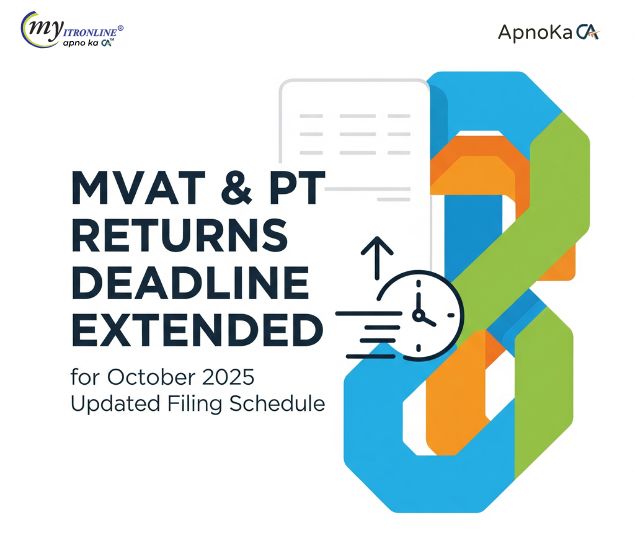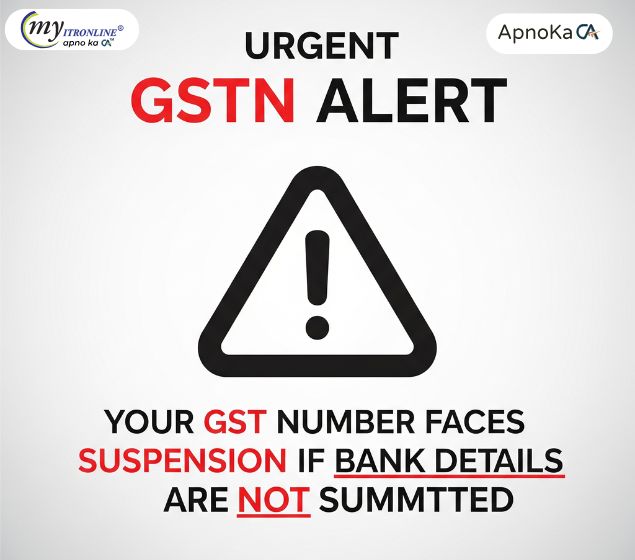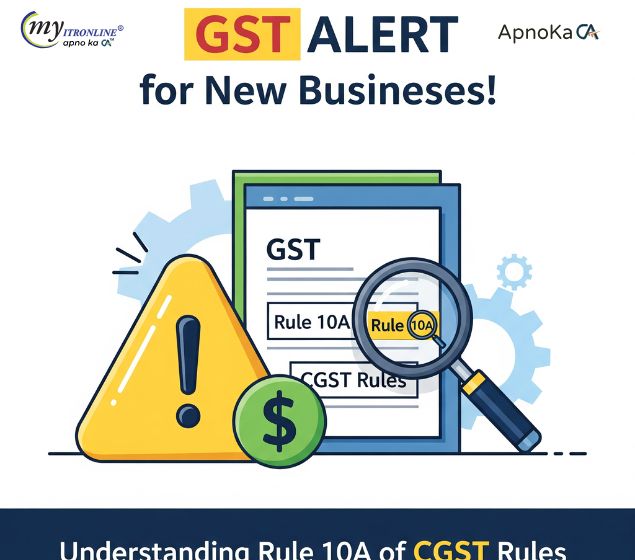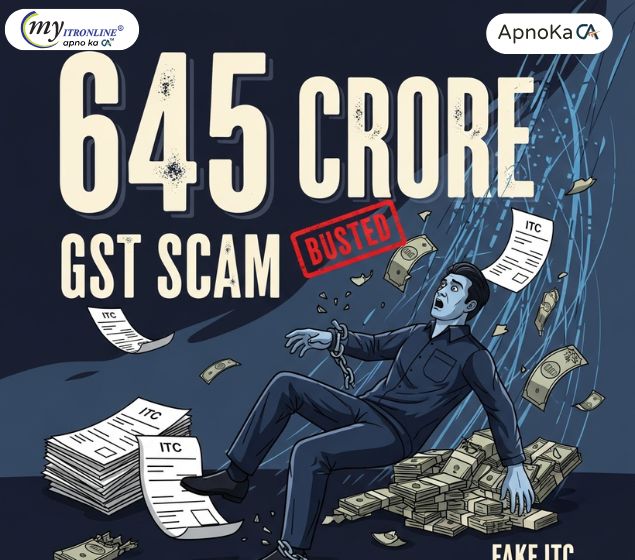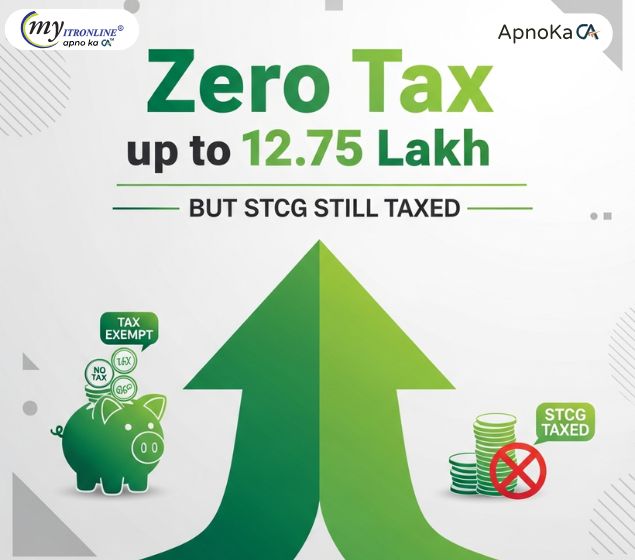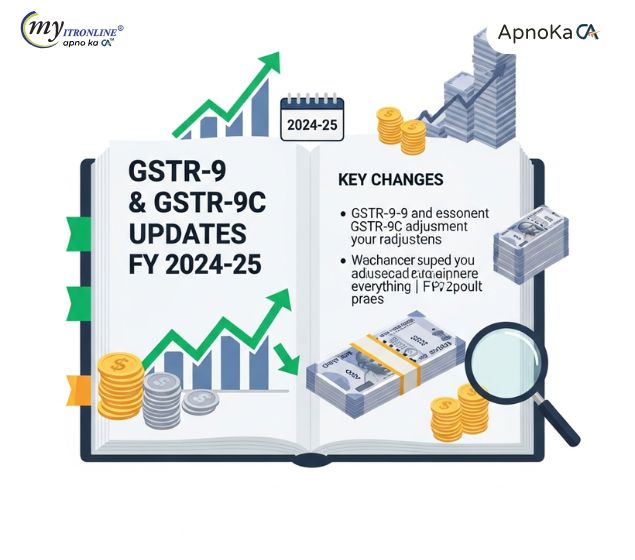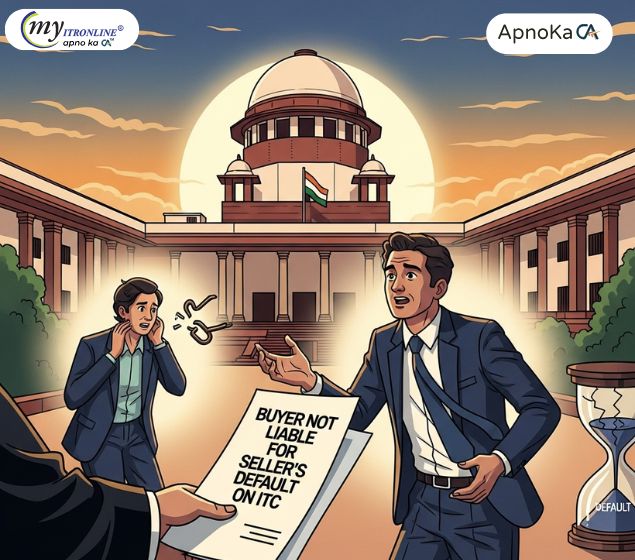GST Compliance for Property Rentals: Understanding the RCM Update
This blog post explains the recent changes to the Reverse Charge Mechanism (RCM) for property rentals in India. Landlords of commercial properties are now responsible for paying GST on behalf of unregistered tenants. The changes take effect on October 10, 2024. Businesses must update their accounting systems and seek professional advice to ensure compliance.
.png )
Understanding the RCM for Rental of Immovable Property (Effective October 10, 2024
The Goods and Services Tax (GST) legislation underwent a significant revision concerning the Reverse Charge Mechanism (RCM) on October 10, 2024, by the Indian government. This modification places the rental of immovable property from a registered person to an unregistered person under the jurisdiction of RCM. It was notified by Notification No. 09/2024 - Central Tax (Rate).
This article explains the nuances of this move, how it affects businesses, and what information taxpayers should be aware of.
What is the RCM, or Reverse Charge Mechanism?
Before digging into the new notification, it’s vital to understand what RCM is. The supplier of goods or services is normally in charge of gathering and remitting GST to the government. But under RCM, the service recipient is now responsible for paying the tax rather than the provider.
Regarding the most recent notification, the entity in charge of paying the tax under the reverse charge is now the recipient of the service (property rental).
Key Provisions of the October 2024 Notification
1. GSR Notification 09/2024: Modifications to the GST on Property Rentals
The announcement notably updates Table 5A in accordance with the GST regulations to incorporate the subsequent reverse charge scenario:
- Category of Services: By method of renting of any property other than residential dwelling
- Reverse Charge Liability: When a registered person rents out a property to an unregistered person, the unregistered person is not liable for GST directly, but the registered person becomes liable for paying GST on behalf of the recipient under RCM.
2. Range of Covered Properties
The majority of properties affected by this clause are commercial ones because it only applies to non-residential properties. Residential properties leased for individual use are not affected by this modification.
3. Date of Effectiveness
This notification will become operative on October 10, 2024. This change will apply to all transactions involving the rental of non-residential properties as of this date.
4. Modifications to Administration and Compliance
Those who are registered and willing to rent out their property must now make sure they understand the additional obligations they have under RCM. Landlords of commercial buildings will have to remit GST on behalf of their renters if the tenant is unregistered, which creates an additional compliance burden.
Realistic Consequences for Companies and Property Owners
This modification has significant effects for both landlords and tenants:
Landlords (Persons with Registration):
- Even if their tenants are unregistered, landlords of commercial premises will now be required to pay GST under RCM.
- They have to make sure that this arrangement is reflected in the appropriate paperwork and invoices.
Unauthorized Tenants:
- GST will no longer be paid directly to businesses or individuals that rent commercial buildings but are not registered under the GST program. They might, however, be impacted indirectly because landlords may include this GST expense in the rent.
Increased Compliance:
- Companies that manage rental properties need to modify their accounting and billing procedures to reflect this shift.
- In order to avoid fines, they must also make sure that their unregistered renters pay their GST on time.
Why Has This Changed?
This amendment was most likely put out by the government to increase administrative simplicity and transparency in the rental service tax system. Normal situations could allow unregistered individuals to evade taxes. But by giving registered landlords this additional duty, the government makes sure that GST is collected effectively and without any loopholes.
Since landlords usually have greater expertise complying with GST regulations than unregistered individuals, this step also attempts to speed the GST procedure.
How Do Companies Get Ready?
Being prepared is essential for businesses and property owners. The following actions will assist in guaranteeing compliance:
Recognize Applicability
Verify whether the premises you lease come under the "non-residential" classification. If so, this change will have an impact on you.
Revise Systems and Invoices:
Make the appropriate adjustments to your accounting and invoicing software to take into account the RCM mechanism for unregistered tenants.
Make Sure GST Is Paid On Time:
In order to avoid fines and penalties, it is imperative that the landlord ensures the timely remittance of GST under RCM.
Expert Tax Consultation at MyITROnline:
To ensure you're fully compliant with the latest regulations, it's always advisable to consult with our expert tax professionals at MyITROnline.
In Summary
For landlords of commercial properties, the implementation of RCM on the rental of immovable property by a registered person to an unregistered person represents a dramatic change in the compliance environment. Businesses need to immediately adjust to this transition in order to assure smooth operations and prevent compliance hazards, as the deadline of October 10, 2024, approaches.
Both landlords and tenants will be able to better manage their GST financial obligations if they have a clear understanding of these changes.
FILING YOUR INCOME TAX RETURN F.Y 2024-25 (A.Y. 2025-2026) WITH MYITRONLINE
The income tax filing deadline is right around the corner. If you haven’t filed yet, do it today with Myitronline! Avoid last minute rush and file your tax return today on MYITRONLINE in Just 5 mins.(www.myitronline.com)
If you are looking for eCA assistance to file your income tax return/ GST, you can opt for MYITRONLINE eCA assisted plan starting
Upload Salary Individual Form-16
If you have any questions with filing your tax return, please reply to this mail. info@myitronline.com OR call 9971055886,8130309886.
Note-All the aforementioned information in the article is taken from authentic resources and has been published after moderation. Any change in the information other than fact must be believed as a human error. For queries mail us at marketing@myitronline.com
Krishna Gopal Varshney
An editor at apnokacaKrishna Gopal Varshney, Founder & CEO of Myitronline Global Services Private Limited at Delhi. A dedicated and tireless Expert Service Provider for the clients seeking tax filing assistance and all other essential requirements associated with Business/Professional establishment. Connect to us and let us give the Best Support to make you a Success. Visit our website for latest Business News and IT Updates.
Leave a reply
Your email address will not be published. Required fields are marked *Share this article
Krishna Gopal Varshney, Founder & CEO of Myitronline Global Services Private Limited at Delhi. A dedicated and tireless Expert Service Provider for the clients seeking tax filing assistance and all other essential requirements associated with Business/Professional establishment. Connect to us and let us give the Best Support to make you a Success. Visit our website for latest Business News and IT Updates.
View articles








